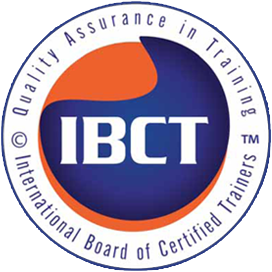What is critical thinking, and why is it important?
Critical thinking is the ability to organize information logically to make a reasoned judgment. It involves the evaluation of data sources, facts, and other research to make a reasonable conclusion by “connecting the dots.”
Critical thinking helps trainees better understand themselves, their motivations, and their goals. When trainees can deduce information to find the most important parts and apply those to their workplace, they can change their situation and ultimately achieve their organizations’ goals.
Critical thinking in the workplace means sorting among useful and arbitrary details to come up with a big-picture perspective that leads to an impactful decision or solution to a problem.
If you find yourself stuck in your career path, many times, it’s due to a lack of critical thinking.
Critical thinking skills are immensely valuable to trainees.
How do you assess a trainees’ ability to think critically?
To assess those trainees who can develop critical thinking skills, start by looking for the desirable traits critical thinkers possess:
- Curious and interested in learning more
- Sees connections between two different pieces of information that point to a trend or observation
- Open-minded listener eager to hear different perspectives
- Self-reflective in examining their own biases or prejudices
- Naturally creative in crafting solutions
- Self-confident, as confidence is essential in thinking independently, presenting conclusions, and making decisions
Competencies & conditions to develop trainees critical thinking
- Integrate: Integrate critical thinking skills within and across all content areas.
- Safe Environment: Establish safe, intellectually risk-free learning environments.
- Consistently Cultivate: Consistently cultivate high-order thinking skills.
- Time: Allow time to develop critical thinking skills.
- Opportunities: Provide trainees with repeated opportunities to practice high-order thinking.
- Promote: Promote academic conversations or dialogue that foster critical thinking.
25 pathways to critical thinking
- Think deeply to make relevant connections
- Ask quality and clarification questions
- Use evidence and reasoning to support thinking
- Analyze, reason, and evaluate
- Interpret information beyond surface learning
- Synthesize diverse ideas
- Solve relevant and complex problems
- Make reasoned decisions
- Generate and evaluate options prior to making decisions
- Focus on details to derive meaning
- Apply higher levels of thought to real-world situations
- Think critically on a daily basis
- Use criteria to judge the value of ideas and solutions
- Engage in reflective thinking
- Follow problems solving steps
- Question the credibility, accuracy, and relevance of information and sources
- Well informed
- Willing to consider multiple perspectives
- Seek new and better solutions
- Explore alternatives
- Examine diverse points of view
- Value and respect ideas from others
- Assess consequences of actions or ideas
- Questions what is read, heard, or seen
- Think independently and in concert with others




شكرا لعطائكم ودعمكم